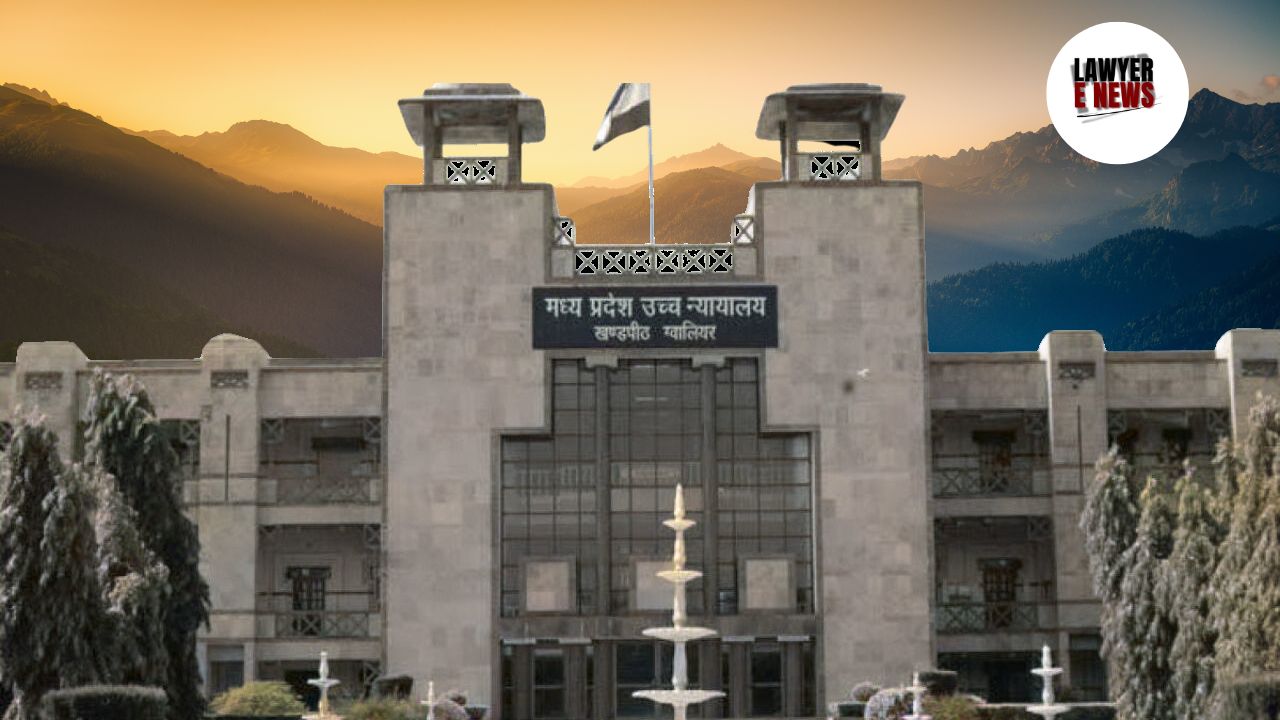-
by sayum
14 February 2026 2:22 PM



Madhya Pradesh High Court, presided over by Justice G.S. Ahluwalia, dismissed a petition filed under Section 482 of the Code of Criminal Procedure, 1973 (CrPC), by Tulsi Ram Lodhi, who sought to challenge the trial court's order closing his right to cross-examine the prosecutrix in a rape case. The petitioner's counsel repeatedly delayed the cross-examination, leading the court to conclude that these were deliberate attempts to harass the prosecutrix. The High Court upheld the trial court's decision, emphasizing the importance of preventing delaying tactics in trials involving serious offenses.
Tulsi Ram Lodhi, the petitioner, was facing charges under Sections 376 (rape) and 354 (assault or criminal force to outrage modesty) of the Indian Penal Code, 1860 (IPC). During the trial, the prosecutrix was examined on February 9, 2024, but the petitioner's lawyer sought an adjournment for cross-examination, claiming he was unprepared. The trial was adjourned to February 23, 2024, but no progress was made, and on March 6, 2024, a new counsel for the petitioner again requested more time and refused to pay the costs for the prosecutrix’s repeated attendance. The trial court, noting the pattern of delay, closed the petitioner's right to cross-examine the prosecutrix.
The key legal issues in the case revolved around:
Right to Cross-Examination: Whether the petitioner's repeated adjournments, including the engagement of a new lawyer, justified the closing of his right to cross-examine the prosecutrix.
Delaying Tactics: Whether the petitioner's actions were legitimate or merely tactics to harass the prosecutrix and delay the trial.
Repeated Delays and Harassment of the Prosecutrix
The High Court noted that the petitioner had ample opportunity to cross-examine the prosecutrix but chose to delay proceedings. Justice Ahluwalia emphasized that the petitioner’s repeated requests for adjournments were aimed at harassing the prosecutrix and preventing the trial from proceeding smoothly. The court cited Section 309 of the CrPC, which mandates that trials, once started, should proceed day-to-day until the examination of witnesses is complete.
"The sole intention of the petitioner was to somehow harass the prosecutrix by continuously seeking adjournments," the court observed [Para 19].
Change of Lawyer Not a Valid Ground
The court also rejected the argument that a change of lawyer justified further adjournments, stating that the petitioner was fully aware of the trial schedule and could have prepared accordingly. The court emphasized that the engagement of a new lawyer could not be used as a tactic to delay the proceedings, especially in a case involving serious charges like rape.
"The change of counsel cannot be a ground for adjournment because the petitioner was already aware of the next date before the trial court," the court ruled [Para 19].
The High Court reiterated the importance of ensuring that trials are conducted expeditiously, particularly in cases involving sensitive matters like sexual assault. The court cited several Supreme Court judgments, including Vinod Kumar vs. State of Punjab (2015) and Mohd. Khalid vs. State of W.B. (2002), which decried the practice of delaying trials through repeated adjournments, especially when witnesses are present and ready to testify.
"Adjournments should not be granted just for the sake of adjournment, and the court should keep the difficulties in mind, which may be faced by the witnesses," the court emphasized [Para 16].
The Madhya Pradesh High Court dismissed the petition, upholding the trial court's decision to close the petitioner’s right to cross-examine the prosecutrix. The court made it clear that the petitioner was responsible for the situation he found himself in, having repeatedly sought to delay the trial for non-bonafide reasons.
"It is true that the petitioner may suffer irreparable loss on account of non-cross-examination of the prosecutrix, but for this hard-burning situation, only the petitioner is responsible," the court concluded [Para 21].
The judgment serves as a stern reminder of the need to prevent delaying tactics in criminal trials, particularly in cases involving sensitive charges like rape. The court reaffirmed that while the right to cross-examine is crucial for the defense, it must not be used to harass witnesses or obstruct the course of justice. The decision underscores the balance that courts must maintain between ensuring a fair trial and protecting the rights of the victim to timely justice.
Date of Decision: October 18, 2024
